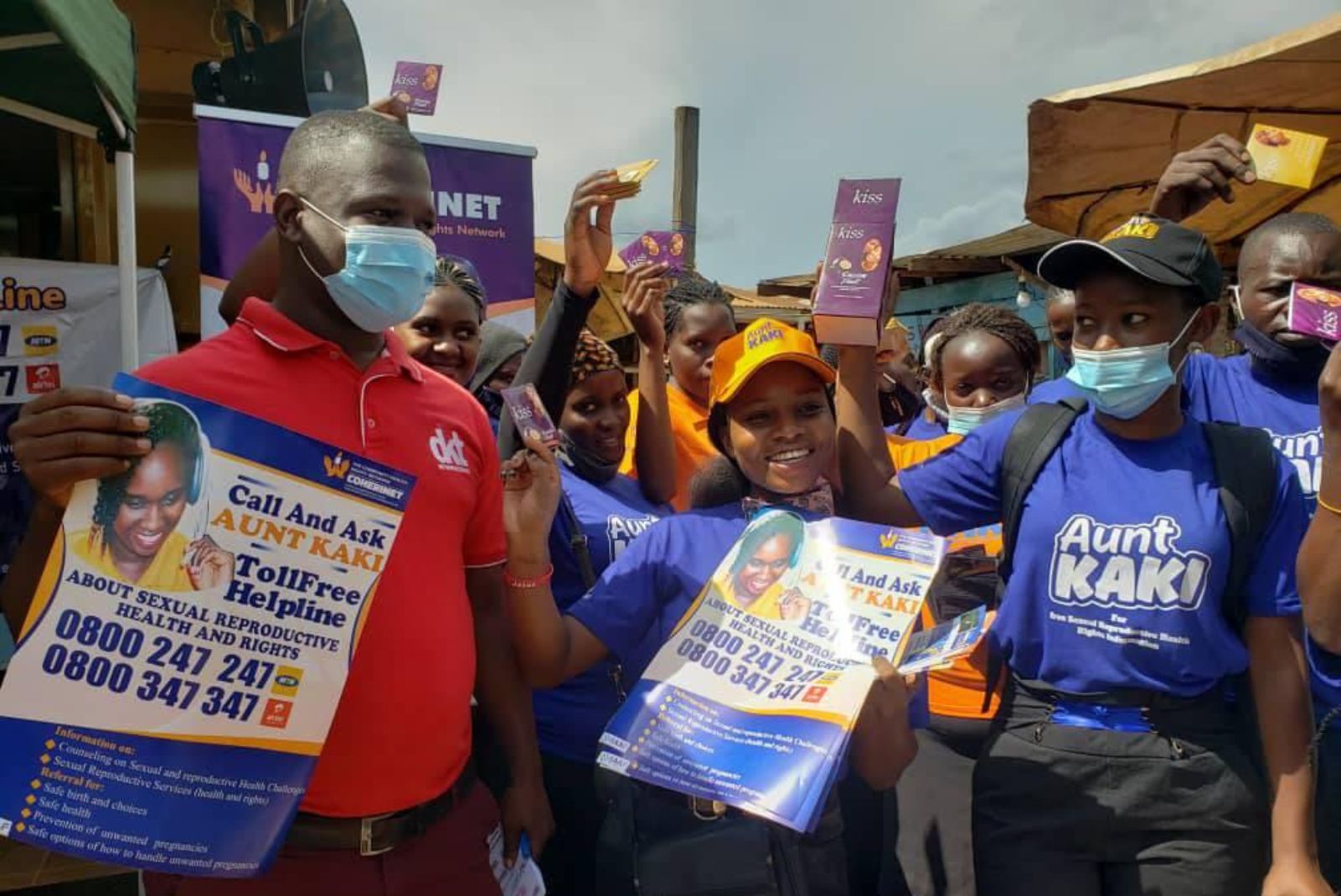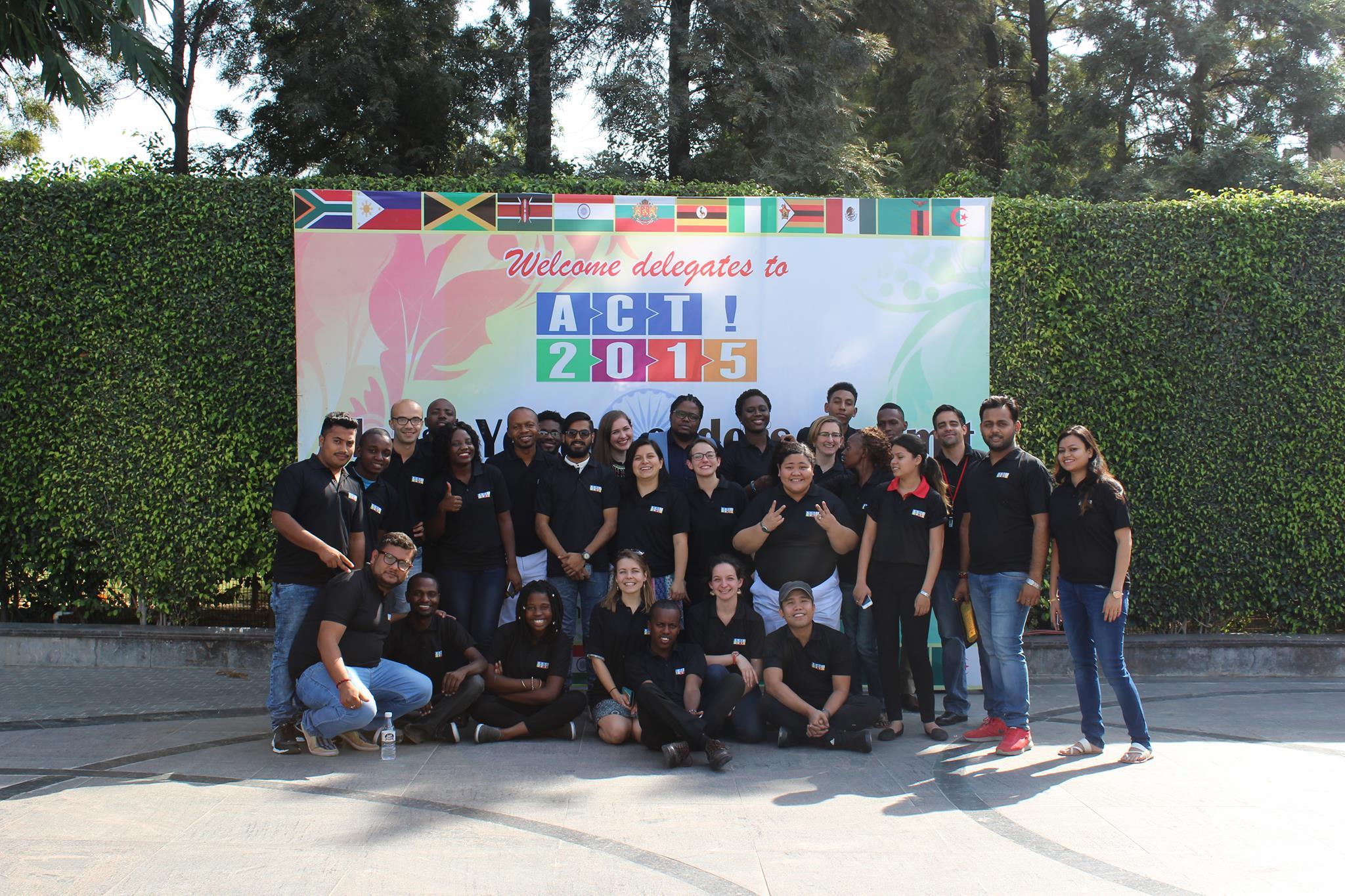
| 26 April 2022
SPRINT: Sexual and reproductive health in crisis and post-crisis situations
The SPRINT Initiative delivers one of the most overlooked but life-saving forms of humanitarian assistance: access to essential sexual and reproductive health (SRH) services during emergencies. When disaster or conflict strikes, SPRINT ensures that the reproductive health needs of women, girls, and marginalised groups are not forgotten.Since 2007, the SPRINT programme has supported the provision of lifesaving SRH services in emergencies by IPPF’s Member Associations (MAs) across the Indo-Pacific region and beyond. Drawing on IPPF’s existing local networks and partnerships at the country level, SPRINT covers all stages of the humanitarian programme cycle – from preparedness and response to recovery and post-crisis – while also contributing to long-term system strengthening through mitigation strategies.In 2024, SPRINT IV enabled IPPF MAs to provide essential, life-saving SRH services in crisis situations in Sudan, Thailand, Nepal, Indonesia, Bangladesh, Pakistan, India, South Sudan, Ethiopia, the Philippines and Vanuatu.Funded by the Australian Government’s Department of Foreign Affairs and Trade (DFAT), SPRINT builds the capacity of local and national actors to deliver the Minimum Initial Service Package (MISP) for reproductive health in emergencies. These life-saving services include support for safe childbirth, contraception, prevention and treatment of sexually transmitted infections, and clinical care for survivors of sexual violence.Since its launch, SPRINT has responded to 128 humanitarian crises across 99 countries, reaching over 2.5 million people with essential services. In each priority country, IPPF works through its local Member Associations to lead and coordinate the SRH response. These partnerships help strengthen national systems, build local capacity, and ensure that services are timely, accessible, and rights-based.Australia’s location in the Indo-Pacific gives DFAT a unique regional perspective on humanitarian action. In addition to supporting direct response, Australia is committed to building the capacity of governments and civil society to lead their own crisis response. DFAT also works in collaboration with other donors, the United Nations, the International Red Cross and Red Crescent Movement, and NGOs to strengthen preparedness and humanitarian coordination.You can read more about IPPF Humanitarian’s work here.

| 13 June 2017
Safe Abortion Action Fund
The Safe Abortion Action Fund (SAAF) is the only international fund focused exclusively on the right to safe and legal abortion. It was established in 2006 in part to meet the critical need for funding that arose upon the re-imposition of the ‘Global Gag Rule’. SAAF (hosted by IPPF) quickly became an important and unique funding mechanism – unequivocally focusing on de-stigmatizing and increasing access to safe legal abortion across the world and supporting organisations that serve people living in the most restrictive environments. Where financial support for abortion initiatives is scarce, particularly for organisations that may not be able to access large international funding mechanisms, SAAF provides a channel that can effectively support and strengthen the capacity of these groups, without the high administrative burden required by many donors. For more information about the fund visit the SAAF website www.saafund.org

| 07 February 2017
ACT!2030
IPPF collaborates with UNAIDS and The PACT to implement ACT!2030 (formerly ACT!2015), a youth-led social action initiative which engages young people in 12 countries with advocacy and accountability around the Sustainable Development Goals (SDGs) and other SRHR agreements/frameworks. ACT!2030 was initiated in 2013 as a way to increase youth participation in the negotiations leading up to the adoption of the post-2015 development agenda, and for two years focused on establishing alliances of youth-led and youth-serving organisations in 12 countries across the world. The project is currently in Phase 4, which runs until the end of 2017, and aims to establish youth-led, data-driven accountability mechanisms to ensure youth engagement with the implementation of the SDGs and build an evidence base for advocacy. Ultimately, Phase 4 of ACT!2030 seeks to identify, assess and address key policy barriers to young people’s sexual and reproductive data by using existing data, supplemented by youth-collected data, to advocate and lobby for policy change. This phase involves four main activities: indicator advocacy (persuading decision makers to adopt youth-friendly SRHR and HIV indicators, including on things like comprehensive sexuality education (CSE) and access to youth-friendly services, into national/global reporting mechanisms); evidence gathering (creating national databases on quality of and access to youth-friendly services and CSE); communications (transforming this data and evidence into communications pieces that can be used to advocacy and lobby at national and international level); and global exchange (facilitating global visibility to share advocacy and engagement learnings and increase youth-led accountability in global and regional processes). ACT!2030 is implemented by national alliances of youth organisations in 12 countries: Algeria, Bulgaria, India, Jamaica, Kenya, Mexico, Nigeria, Philippines, South Africa, Uganda, Zambia and Zimbabwe.

| 05 May 2016
Tackling abortion stigma
Abortion stigma affects women and girls, abortion providers, reproductive rights advocates and communities. Although abortion is a common experience around the world, it is still largely stigmatised. Negative attitudes and beliefs about abortion may act as barriers to accessing safe services and can make it difficult for people to talk about their experiences of abortion. This can be very isolating, and may force people to continue unwanted pregnancies or to seek unsafe abortion. Since 2011 the David & Lucile Packard Foundation has supported IPPF to implement a range of initiatives to investigate and address abortion stigma. Find out more here, about the effective strategies and learning over the course of this project. It is often young people who are most severely affected by abortion stigma, and who are most at risk of suffering health complications as a result of unsafe abortion. Since 2014 IPPF has delivered a project focused on abortion stigma as it affects young people’s access to services, with targeted work in our Member Associations in Benin, Burkina Faso, India and Pakistan. This builds on previous initiatives and includes: Implementing individual, community and clinic-based interventions in the four countries where abortion stigma research was conducted under the previous grant. Abortion stigma at the community level will be measured at the beginning and end of each project using an adapted version of the Stigmatizing Attitudes, Beliefs and Actions Scale (SABAS) developed by Ipas Developing global guidance and tools to improve abortion messaging to ensure abortion is integrated into peer educator training and better raise awareness of abortion-related services to young people Building capacity of youth advocates to speak out on the right to access abortion services Generating and sharing of evidence and good practices on addressing abortion stigma In addition to the abortion stigma work supported by the Packard Foundation, the IPPF Western Hemisphere Region (WHR) has been conducting a research study in collaboration with Ibis Reproductive Health to better understand the effects that the provision of abortion-related services have on providers’ and clients’ perceptions and experiences of stigma. This research has been conducted in four countries with different legal contexts and varying degrees of access to services: the Dominican Republic, Uruguay, Colombia, and Argentina. WHR is also working with the University of Michigan to pilot facilitated group workshops to reduce stigma and foster resilience among abortion service providers in Colombia, Argentina, Bolivia, Mexico and Peru. Through this project IPPF has created a range of tools and resources to support understanding of abortion stigma and to increase the capacity of our Member Associations to advocate for safe abortion, and to provide non-stigmatising education and information. How to talk about abortion: A guide for journalists, editors and media outlets encourages accurate reporting of the facts about abortion, and honest portrayals of abortion as part of real people’s lives and relationships. How to educate about abortion: A guide for peer educators, trainers and teachers is a comprehensive guide providing the rationale for teaching about abortion issues, as well a number of practical activities for doing so. The accompanying short animation distills this advice into just two minutes! How to talk about abortion: A guide to rights-based messaging is designed to help individuals and organizations think about the language and images they use to communicate about abortion and offers best practice tips. Again, a short animation has been created to share these tips further Our Member Associations in Bosnia and Herzegovina, Cameroon, Ghana, and Pakistan have shared best practices for improving young people’s access to safe abortion services. These feature strategies based on: creating a ‘buddy system’ for young people accessing services, working with educational establishments, using social media, and youth friendly spaces respectively. In 2015, young people from IPPF Member Associations in Spain, Nepal, Macedonia, Ghana and Palestine were awarded small grants to support projects focused on tackling abortion stigma. Read more about these youth-led projects. The ‘Youth Against Abortion Stigma’ website features blogposts from young IPPF volunteers around the world. In 2017, young people from IPPF Member Associations in Guinea, Kenya, Nepal, Puerto Rico, Sierra Leone and Venezuela were awarded small grants to support youth-led projects focused on tackling abortion stigma. SEE OUR RESULTS






